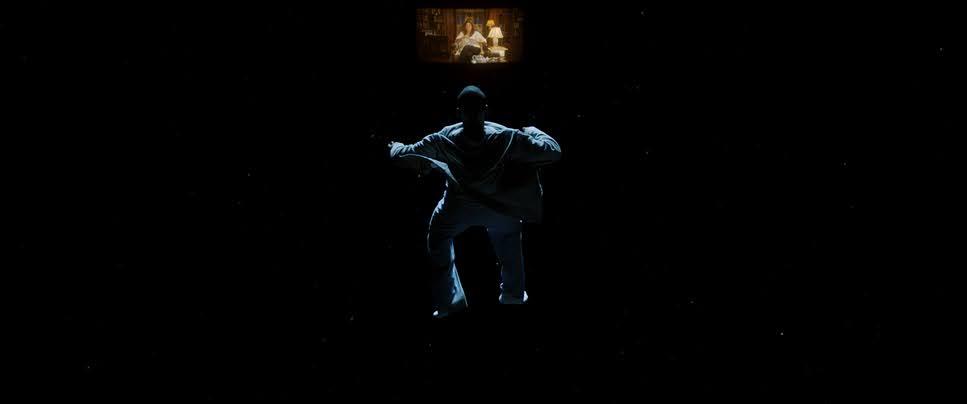A guest piece written by short film director and Celtx Partner Ricky Prosper

An Eerie New Thrill, How Horror Has Changed.
Horror movies have always tapped into our deepest fears and anxieties, making us confront what lurks in the shadows or what we can’t fully understand. But if you’ve been paying attention, the way horror makes us feel scared has changed quite a bit over the past two decades. From cutting-edge technology to shifts in cultural themes, the landscape of horror has transformed in fascinating ways. Let’s take a closer look at why and how horror has evolved so dramatically in the last 10 to 20 years.
You might love this article from The New York Film Academy on The First Horror Movie and the History of Horror

Technological Advances and New Platforms
One of the most noticeable changes is the leap in technology. Today’s horror filmmakers have tools like CGI and advanced special effects that weren’t even imaginable when classics like The Shining or The Exorcist were made. These technological advancements allow for more realistic and, let’s be honest, more terrifying visuals. No more rubber masks or clunky animatronics, modern horror can deliver creatures and supernatural events that look hauntingly real. But it’s not just the effects; the way we consume horror has also changed. Streaming platforms like Netflix, Hulu, and even YouTube have opened up the genre to more experimental and niche films. Filmmakers now have a direct line to audiences, giving them the freedom to tell stories that might not have found a place in theaters. A great example is the 2013 YouTube short Lights Out, which was so effective in its simplicity that it was adapted into a full-length feature film. Now, creators from all over the world have platforms like Vimeo, Instagram, and YouTube to showcase their unique brand of terror and sometimes, these small projects blow up in ways no one could have predicted.
Related: How to Find a Netflix Agent
Cultural Shifts and Diverse Voices
What we fear has always been tied to the world we live in. Older horror films focused on classic themes like haunted houses, monsters, or supernatural entities, but today’s horror is often more personal, dealing with issues like identity, mental health, and social justice. Recent films like Get Out or Hereditary dig deep into our psychological fears, reflecting modern anxieties about race, family trauma, and societal pressures. This evolution isn’t just about what scares us, it’s about why these things scare us now.
A big part of this shift comes from the influx of diverse voices in the horror genre. Over the past decade, filmmakers from all walks of life have been bringing their own experiences and perspectives to the table, giving us stories that challenge traditional horror tropes. This new wave of storytellers is expanding the range of horror, showing that fear is universal, but how it’s experienced and portrayed can be incredibly varied.
How to Become a Screenwriter: A Guide for Aspiring Writers
Audience Expectations and Storytelling
Let’s be honest, modern horror audiences expect more than just a slow build-up to a final scare. We live in a fast-paced world, and today’s viewers want intense, edge-of-your-seat moments right from the start. This demand has influenced how horror films are made, with filmmakers putting more emphasis on jump scares, shocking visuals, and psychological tension. But the real challenge lies in balancing these adrenaline-pumping moments with meaningful storytelling.
Audiences want to be scared, sure, but they also crave a narrative that keeps them hooked beyond the jump-scare.
The Rise of Found Footage and Realism

One trend that taps directly into our fears of the unknown is the rise of found footage and mockumentary style horror. Films like The Blair Witch Project and Paranormal Activity feel raw and real, as if you’re watching something that could actually happen. This style makes the experience more immersive, breaking down the barrier between fiction and reality, and feeding off our primal fears of what we can’t see or fully comprehend.
Global Influence
Finally, we can’t ignore the global influence that has shaped modern horror. International films from countries like South Korea, Japan, and Spain have brought fresh perspectives, unique storytelling techniques, and cultural nuances to the genre. These films have had a significant impact on American horror, broadening its scope and introducing audiences to different kinds of fears, ones that might feel unfamiliar but are no less terrifying. Whether it’s the eerie quiet of The Wailing or the disturbing psychological tension in The Babadook, the global exchange of ideas has made horror more diverse and creative.
Here’s a list from BFI of 10 great South Korean horror films to get you started!
Conclusion
Horror has always been about pushing boundaries, but in the last 10 to 20 years, it’s evolved in ways we couldn’t have predicted. Technological advancements, new platforms, diverse voices, and global influences have all contributed to the genre’s growth. As the world around us changes, so too does what we fear and how we confront those fears on screen. It’s exciting to think about what the next decade of horror will bring, and if the past is any indication, we’re in for some seriously thrilling and innovative scares.

Ricky Prosper is a multimedia creator and Celtx partner with a passion for transforming ideas into captivating art. From designing his first website at 13 to creating original video content, Ricky has spent his life exploring creativity. After serving as a military paralegal and navigating the corporate world, he discovered his love for storytelling and visual arts, leading him to launch Unveiled Arts, a Philadelphia-based production house. Ricky is currently working on his first short film, He Who Sleeps. Follow his creative journey on Instagram @rickyprosperjr.
You might also be interested in:
- From Dreams to Screams: How to Write a Horror Script
- Mastering the Art of Screenwriting: Part 1 of Our Screenwriting Series
- Crafting Visual Masterpieces:Storyboarding Lessons from Alien: Romulus